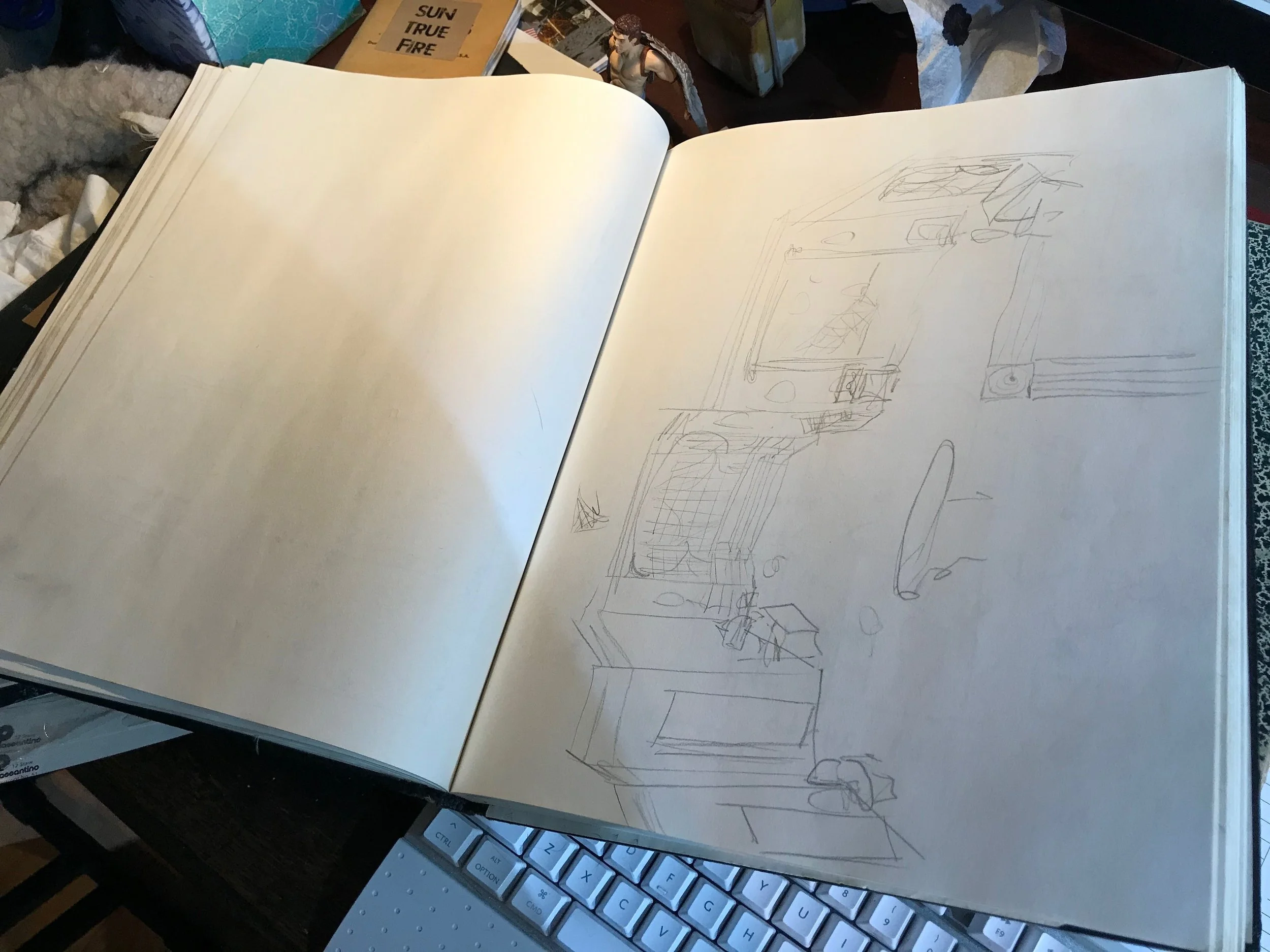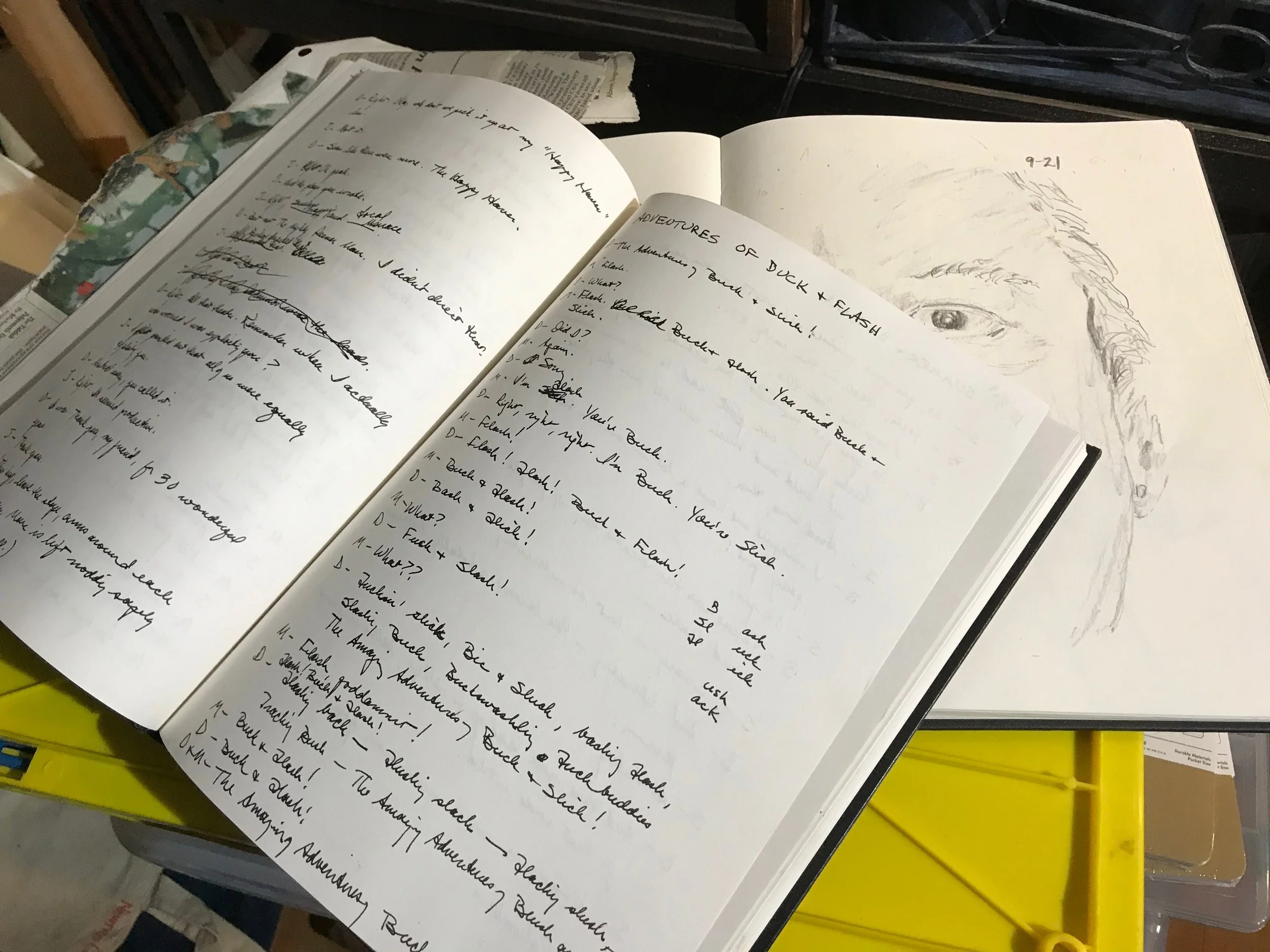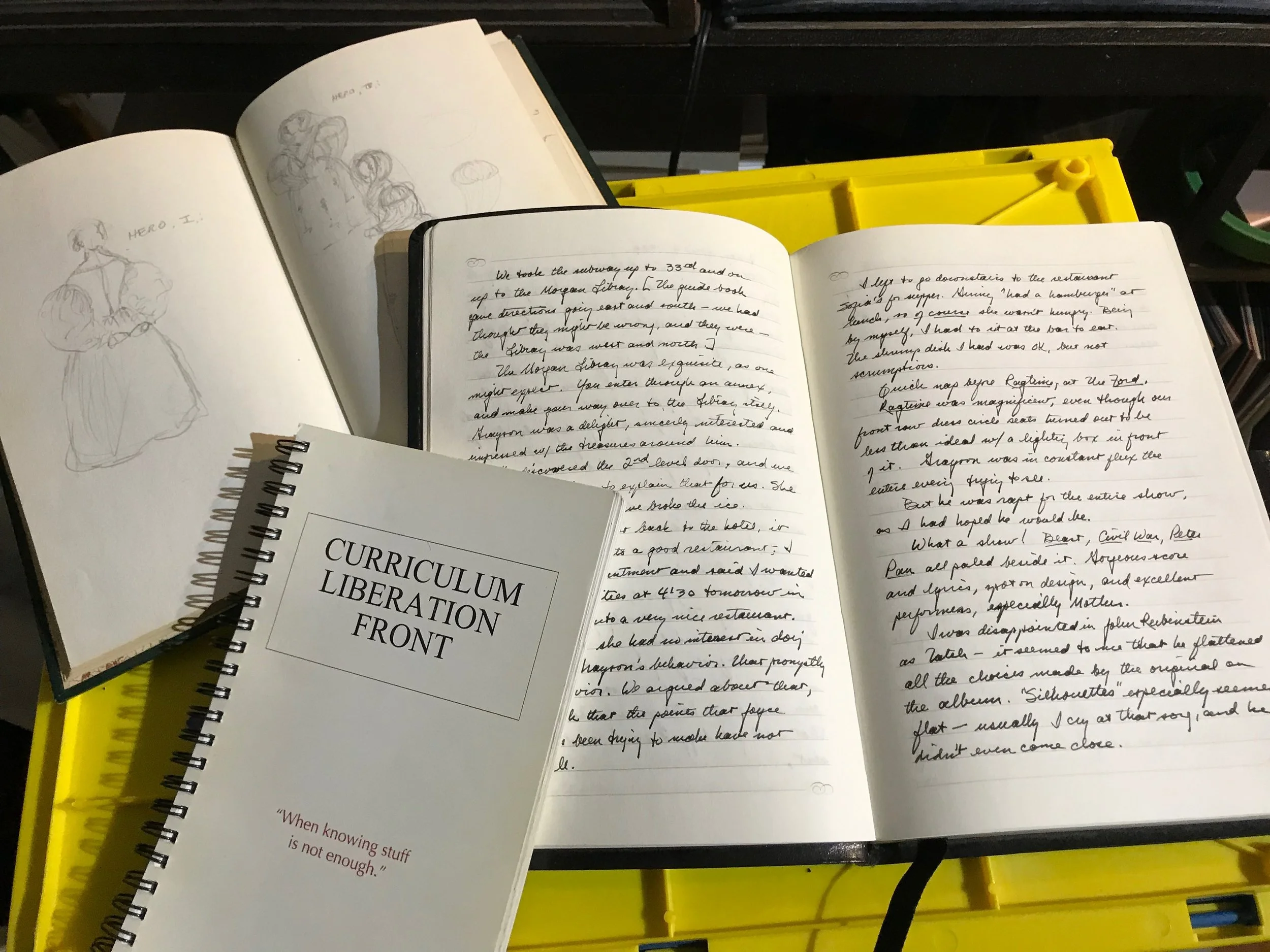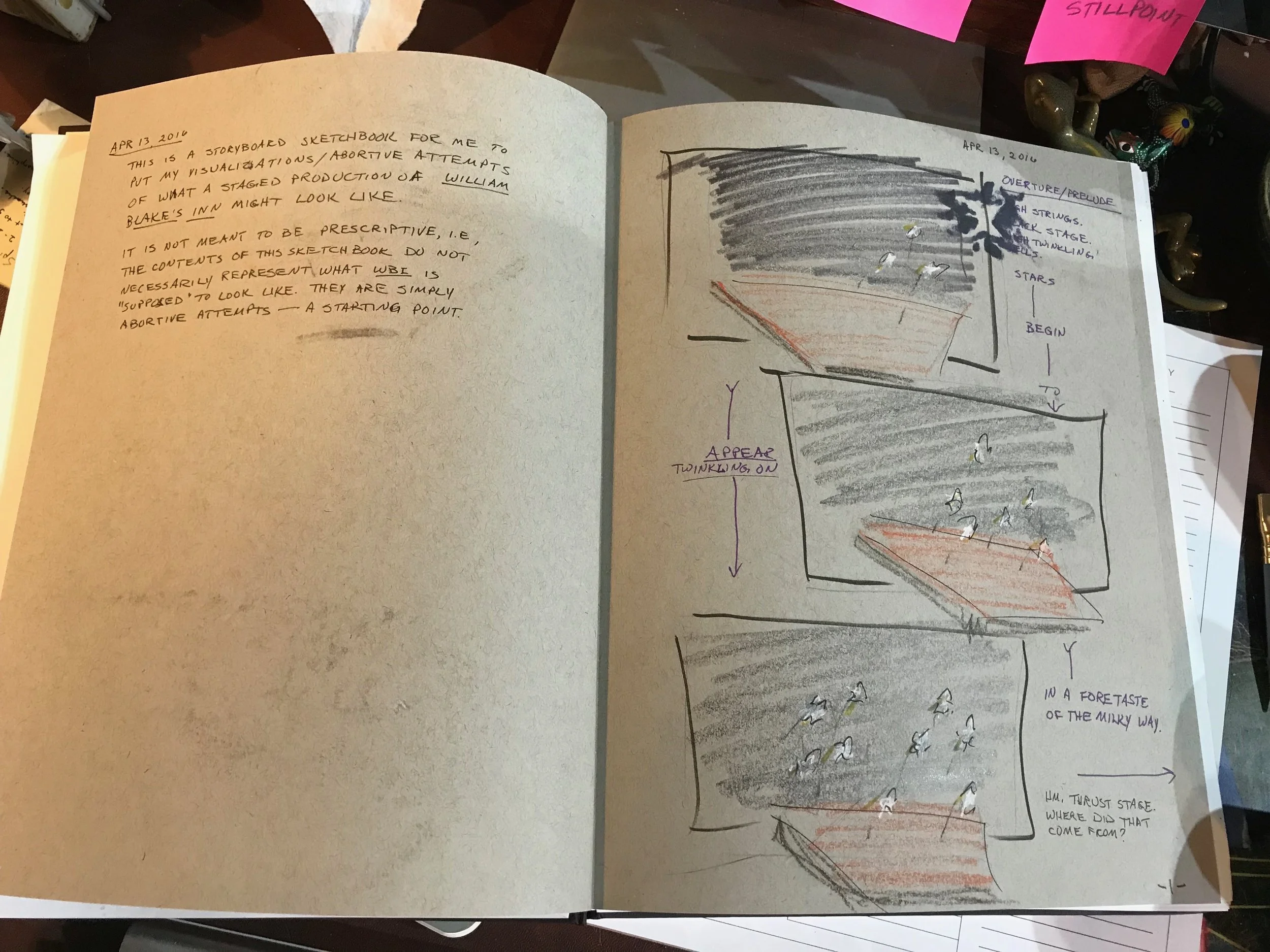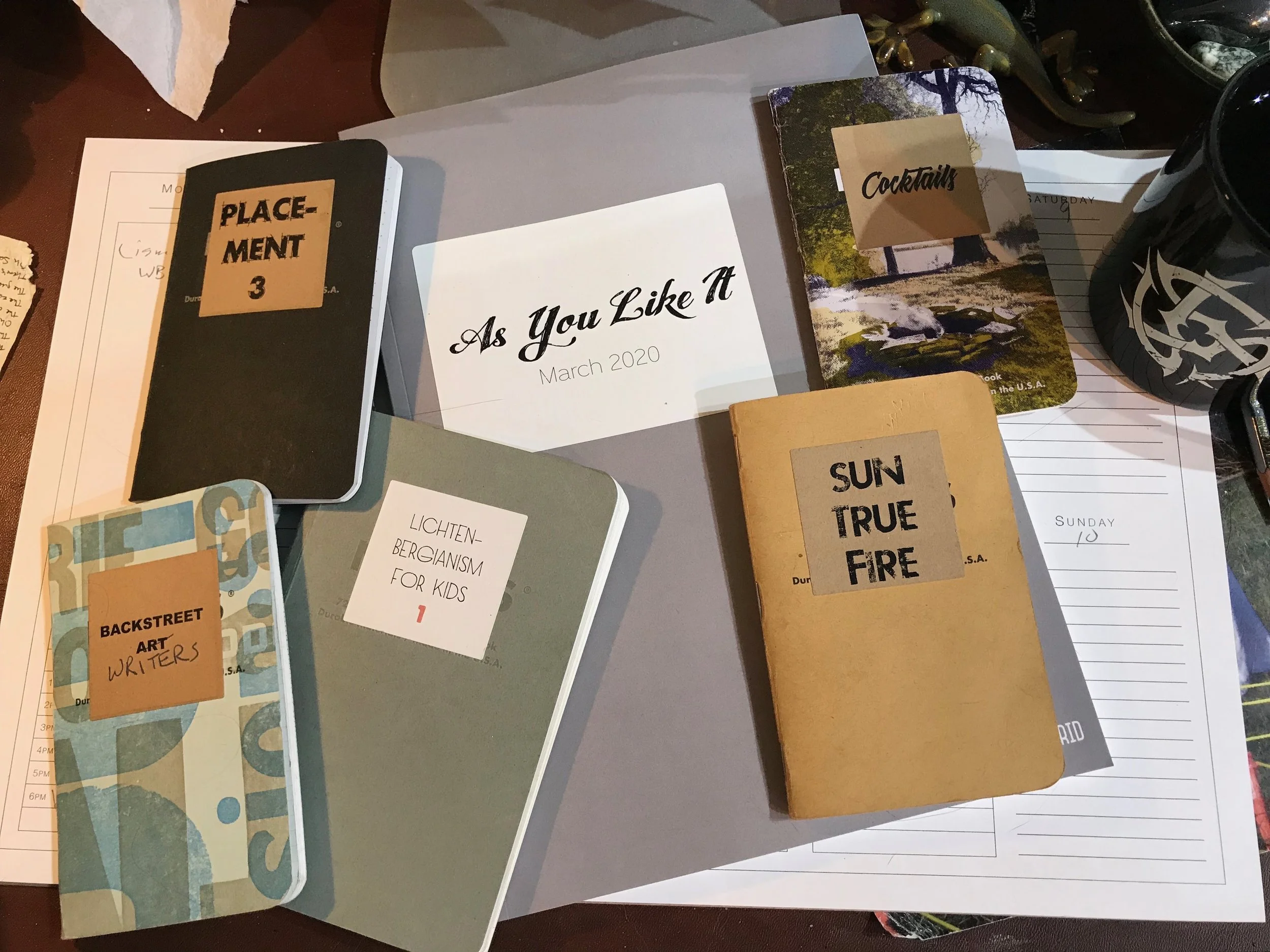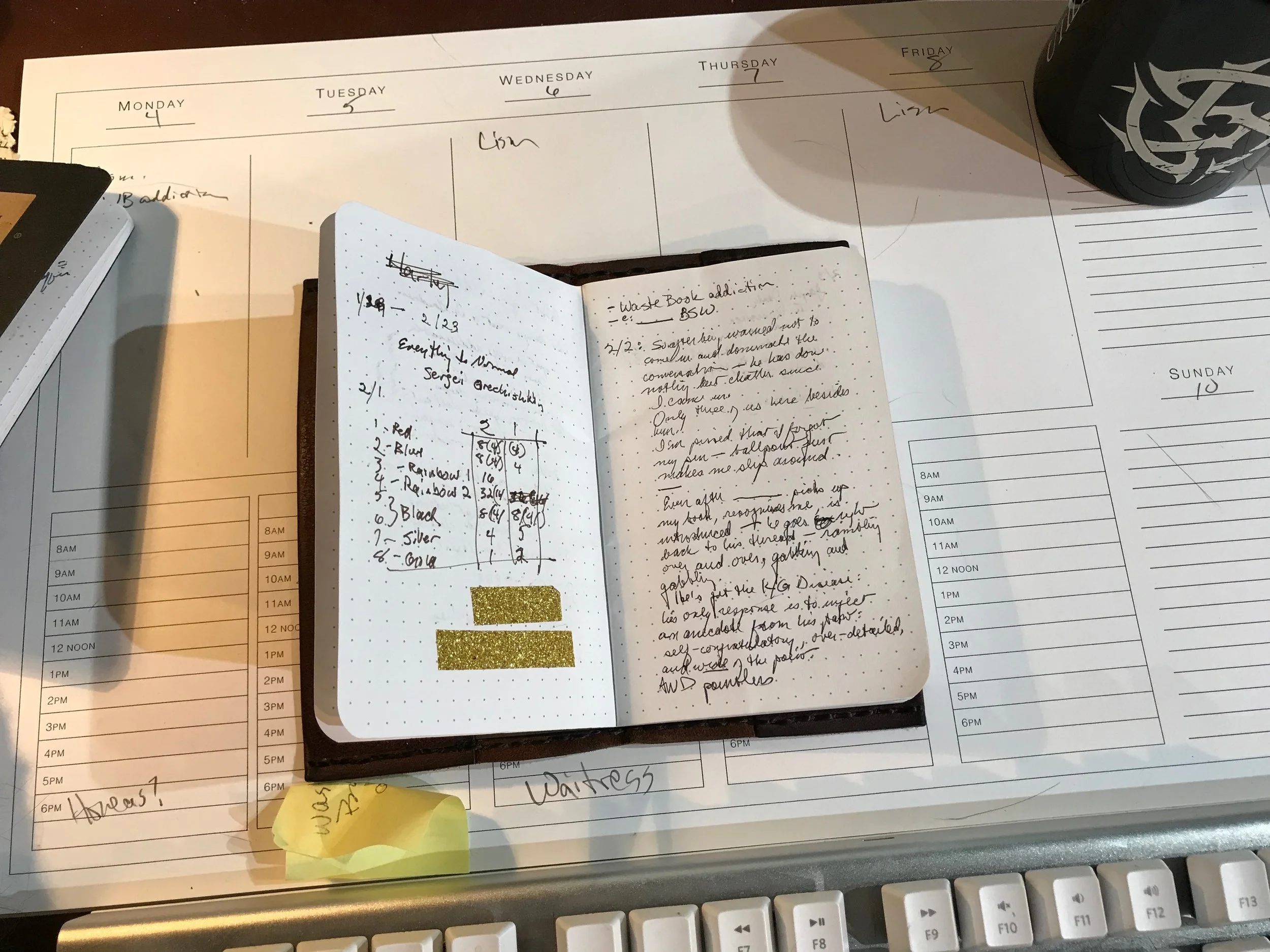WASTE BOOKS Anonymous
/Hi, my name is Dale and I am addicted to WASTE BOOKS.
THE REST OF YOU: Hi, Dale…
I know exactly when it started. I was a teen, a kid, away from home for the first time at the prestigious Georgia Governor’s Honors Program [GHP] as an art major. I was in with a crowd that valued creativity, valued smarts, and I guess I just fell into that mindset.
One day in the college bookstore — the likes of which I had never seen before! — I found this:
Hardbound, and sweet sweet blank paper, a light sea green, ALL THOSE BLANK PAGES!
I bought it, dear reader. I bought another, one with lined pages. And in what is surely a predictor of my creative life, that original blank book is still blank, 49 years later.
When I returned home, the blank books proliferated:
As I moved through college into teaching and managing the Newnan Community Theatre Company, I bought sketchbook after sketchbook, using them for lessons plans, production notes, designs for sets and costumes…
Notebooks for GHP (when I returned as an instructor), for Lacuna Group, for projects imagined and unfinished.
Not pictured: all those Moleskines from GHP, now in storage
I explore meditative visions:
I make visualizations for some fantasy production of William Blake’s Inn:
And of course my Book of the Labyrinth, from which the phases of RITUAL derive:
My current WASTE BOOKS:
So you might ask, “Dale, why is this a problem? You clearly are using WASTE BOOKS in the way that G.C. Lichtenberg intended.”
Ah, but remember that first blank book, still virginal after half a century?
Those are all blank: hardbound, softbound, handmade paper, card stock paper, gridded paper. Note that I already owned these when I ordered the As You Like It WASTE BOOK in the previous photo.
Here are past Field Notes Brand special editions:
And those two wooden boxes?
MORE FIELD NOTES NOTEBOOKS:
These are all blank. To my credit, the bottom box contains finished WASTE BOOKS:
But the ultimate is this beauty:
This is a stunning, hand-tooled, handmade blank book. It’s enormous. I bought it at a crafts exhibit twenty years ago for a specific purpose: to be my handwritten account of my life and times. It goes without saying that it remains pristine.
My current WASTE BOOK
So yes, I am addicted to blank books, notebooks, sketchbooks. I cannot go into a stationery store without fondling all the things, and I almost never emerge from a museum gift shop without at least one new blank book. I will never run out of blank pages to fill — or to leave blank. At this rate, neither will my posterity.
What’s that? … ‘The first step to overcoming a problem is admitting the problem”?
Oh, dear reader, I said I was addicted; I never said it was a problem.





